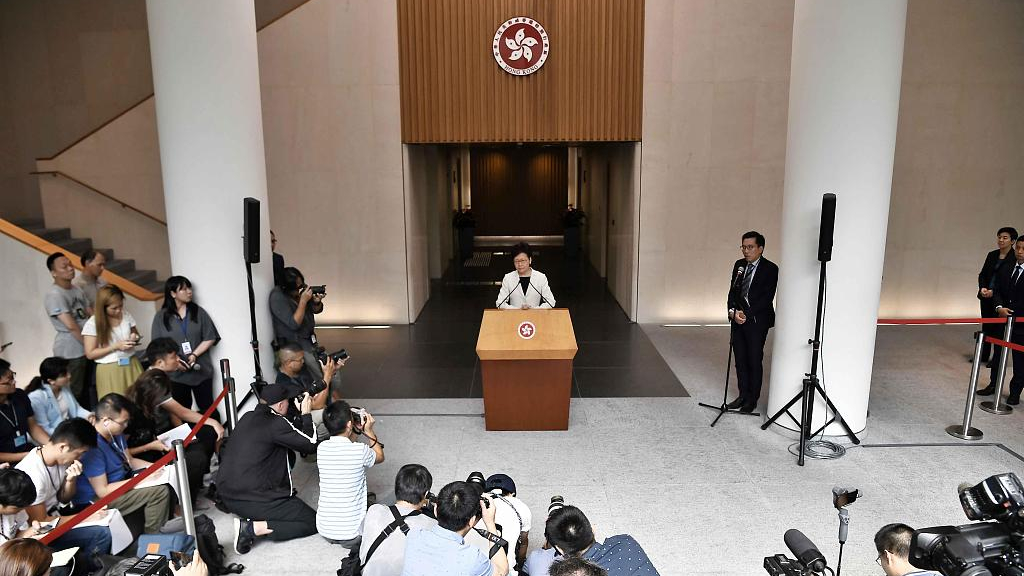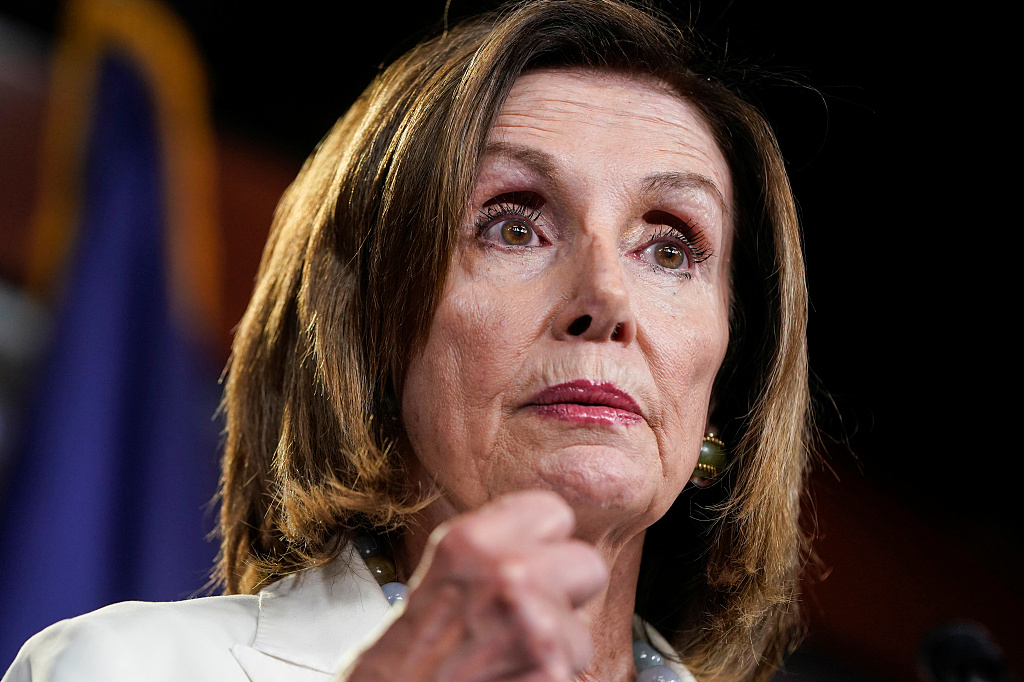
Editor's note: Huang Jiyuan is an opinion editor with CGTN Digital. The article reflects the author's opinions, and not necessarily the views of CGTN.
Dialogue won't heal Hong Kong, but it is the necessary first step.
As she was about to hold her first Dialogue Platform session with the community in Hong Kong, Chief Executive Carrie Lam acknowledged this reality in front of the press. "It's only one step forward, and it's going to be a long journey to reconcile..." she said. And in her op-ed published by the New York Times on September 25, Lam said that a package of "community dialogues and my Policy Address are part of a necessary reconciliation process".
Carrie Lam has expressed that it would be hard to come to a consensus in this two-hours-meeting. After all, dialogue tends not to yield immediate results.
However, dialogue is the cornerstone to governance, regardless of political systems or ideological beliefs. Peaceful protest itself is a form of dialogue. It conveys the people's message to the government, and the government would, in turn, make the necessary adjustments. But, when peace is replaced by violence, dialogue no longer exists.
Violence is a form of demand. Instead of delivering the message to the government, violent rioters are commandeering the public and the government's responses by trying to force their ideologies onto society. The government cannot allow a small band of agitators in society supplant the majority's views.
It applies to what the U.S. Congress is doing as well. Just this morning, the U.S. Senate Foreign Relations Committee and the House Foreign Affairs Committee have passed the Hong Kong Human Rights and Democracy Act of 2019, clearing the way for a floor vote in the coming weeks. The bill would give the U.S. government the authority to sanction Chinese officials if the Americans judge them as "undermining basic freedoms in Hong Kong".

Nancy Pelosi, speaker of the U.S. House of Representatives, has been one of the most vocal U.S. government high officials on Hong Kong affairs. She is giving the Hong Kong Human Rights and Democracy Act of 2019 her full support. And with her backing, the bill is set to pass the House. /VCG Photo
Nancy Pelosi, speaker of the U.S. House of Representatives, has been one of the most vocal U.S. government high officials on Hong Kong affairs. She is giving the Hong Kong Human Rights and Democracy Act of 2019 her full support. And with her backing, the bill is set to pass the House. /VCG Photo
Setting aside the violation of Chinese sovereignty, which is as blatant as it could be, the fact that having five hundred plus officials, less than 0.00001 percent of the U.S. population, trying to dictate the actions of the Chinese government that represents 1.4 billion people is hypocritical. These officials in the U.S. Congress should be carrying out their duties to serve the people in their districts. Instead, they are using the authority their constituents vested in them to impose their own judgment on the internal affairs of another country. They say they are for the interest of residents in Hong Kong. In fact, they are just abusing their power and forcing their own belief onto others whom they are neither representing nor having the right to represent.
For 17 weeks, Hong Kong authorities and peaceful protesters have been pushed into a corner by violence and foreign voices. With doctored pictures and videos showing up on social media and Western news agencies' obsession of painting law enforcers as the villain in the story, the situation was dominated by the scattering noise that doesn't present the full picture and moral crusade that demands an all-or-nothing result.
This is why Carrie Lam's dialogue is a crucial first step toward healing Hong Kong. Dialogue is not an imposition. It is an exchange of views to find a way forward. By setting aside the noise and the extremes, different ideas and beliefs can be logically analyzed and debated. Through this process, policy plans would be formed, the government would be able to implement them, and the society would be able to move forward.
No one knows how many dialogues it will take. But, just as Lam herself said that it would be a "vital part" of her job in the future, it will be a vital part for every Hong Kong resident as well.
(If you want to contribute and have specific expertise, please contact us at opinions@cgtn.com.)